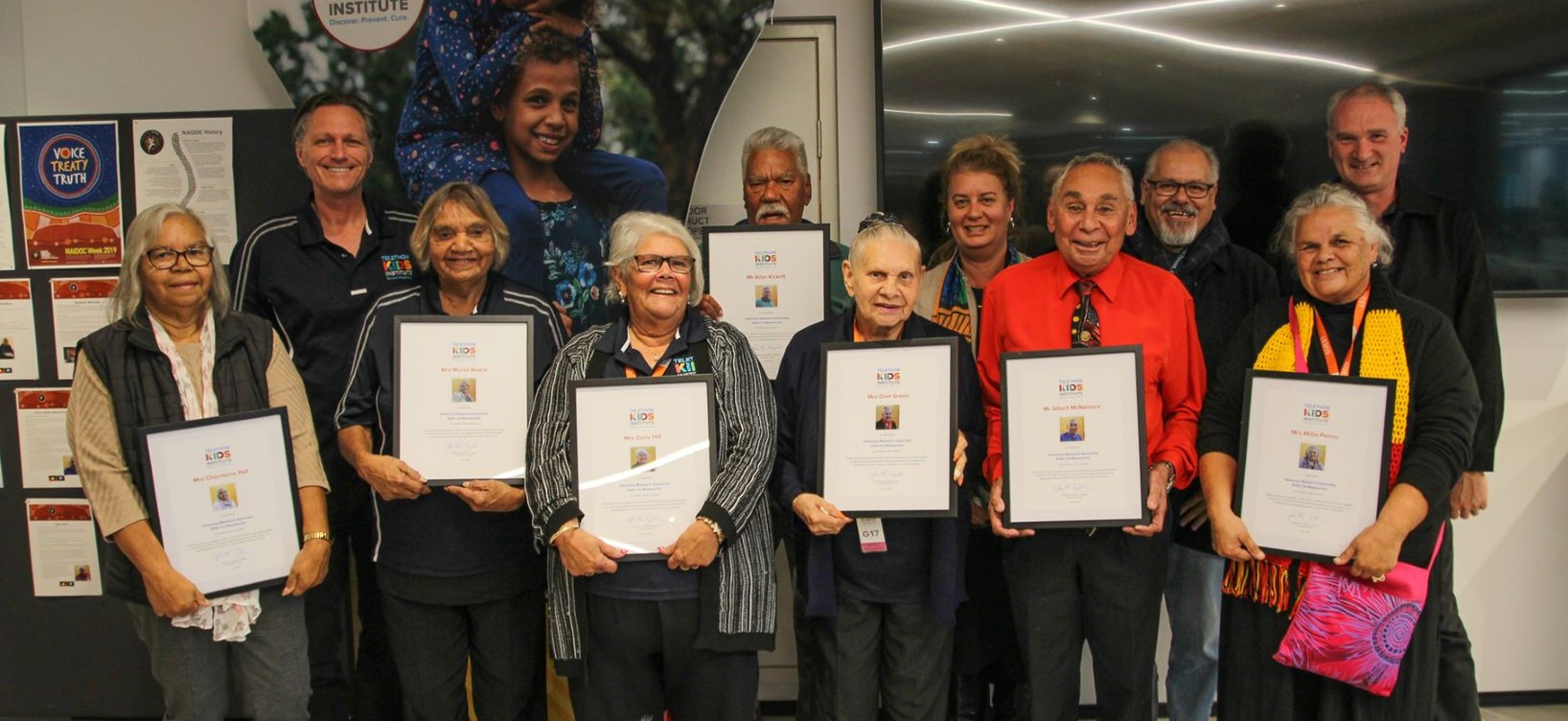Search
Research
BreastfeedingConvenient, readily available and helping create a close and loving bond between baby and mother, breastfeeding is highly regarded for optimising infant health and preventing chronic disease in adulthood.

The Ngulluk Koolunga Ngulluk Koort (Our Children, Our Heart) Project grew out of a bold vision to harness the wisdom of Aboriginal Elders to improve outcomes for Aboriginal children, producing a suite of Elder-led, culturally appropriate and empowering initiatives that are making a difference.
Research
Vitamin D and SunlightIn a sunny country such as Australia, it’s important to identify how to achieve the right amount of sun exposure for good health. We need to be able to harness the benefits of vitamin D and sunlight while remaining protected from the proven dangers of too much UV radiation.
Research
Interventions to prevent post-tuberculosis sequelae: a systematic review and meta-analysisTuberculosis (TB) remains a global public health challenge, causing substantial mortality and morbidity. While TB treatment has made significant progress, it often leaves survivors with post-TB sequelae, resulting in long-term health issues.
Research
An Analysis of the Gut Microbiota and Related Metabolites following PCSK9 Inhibition in Statin-Treated Patients with Elevated Levels of Lipoprotein(a)Atherosclerotic cardiovascular disease (ASCVD) is a leading cause of global mortality, often associated with high blood levels of LDL cholesterol (LDL-c). Medications like statins and PCSK9 inhibitors, are used to manage LDL-c levels and reduce ASCVD risk. Recent findings connect the gut microbiota and its metabolites to ASCVD development.
Research
Hybrid Closed-Loop Versus Manual Insulin Delivery in Adults With Type 1 Diabetes: A Post Hoc Analysis Using the Glycemia Risk IndexGlycemia risk index (GRI) is a novel composite metric assessing overall glycemic risk, accounting for both hypoglycemia and hyperglycemia and weighted toward extremes. Data assessing GRI as an outcome measure in closed-loop studies and its relation with conventional key continuous glucose monitoring (CGM) metrics are limited.
Research
From ‘Pen Sao’ to ‘Tue Pa’: Understanding diverse pathways to adolescent pregnancy in Lao People’s Democratic Republic through qualitative investigation with girls in Vientiane Capital, Vientiane Province, and Luang NamthaAdolescent birth rates in Lao People's Democratic Republic (PDR) remain the highest in Southeast Asia. There is growing recognition that adolescent pregnancy in Lao PDR is occurring within and outside marriage, but there is a lack of robust qualitative evidence to understand girls' pathways to adolescent pregnancy and contributing factors, especially outside of union (cohabitation or marriage).
Research
Mosaic Darier disease flaring following allogeneic stem cell transplantBernadette Ricciardo MBBS (hon) DCH FACD PhD Candidate Bernadette.Ricciardo@thekids.org.au PhD Candidate Dr Bernadette Ricciardo is a PhD student on
Research
Protocol for the development of a core outcome set for neonatal sepsis (NESCOS)Neonatal sepsis is a serious public health problem; however, there is substantial heterogeneity in the outcomes measured and reported in research evaluating the effectiveness of the treatments. Therefore, we aim to develop a Core Outcome Set (COS) for studies evaluating the effectiveness of treatments for neonatal sepsis.
Research
Gut microbiota and metabolomics profiles in patients with chronic stable angina and acute coronary syndromeCardiovascular disease is the leading cause of death worldwide. The gut microbiota and its associated metabolites may be involved in the development and progression of CVD, although the mechanisms and impact on clinical outcomes are not fully understood. This study investigated the gut microbiome profile and associated metabolites in patients with chronic stable angina and acute coronary syndrome compared with healthy controls.
